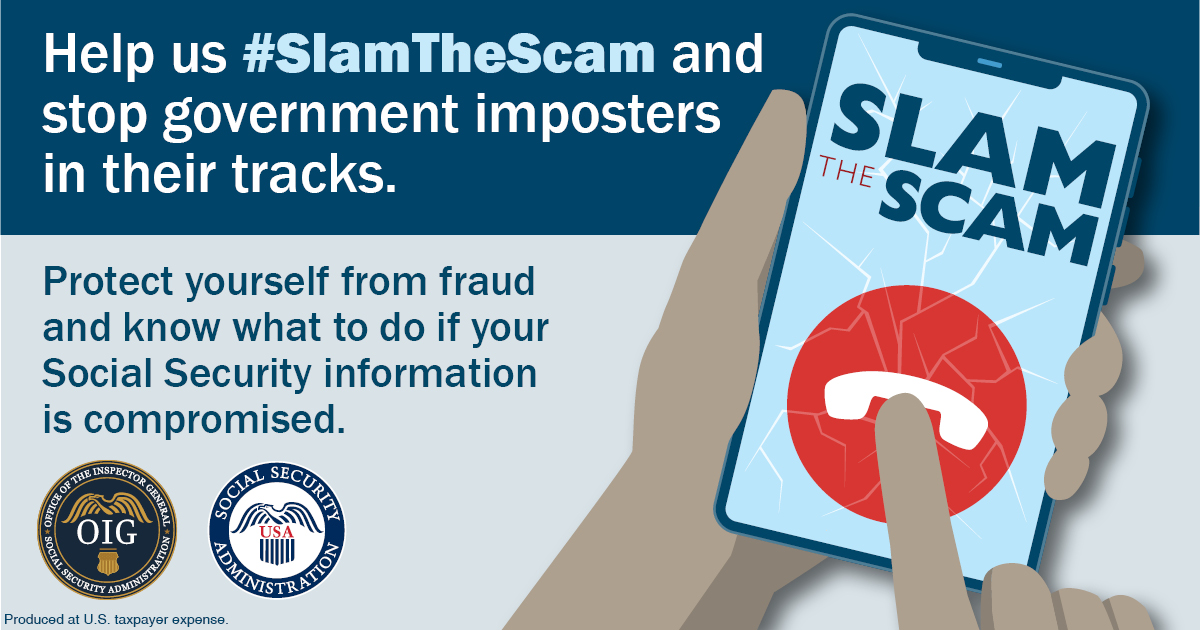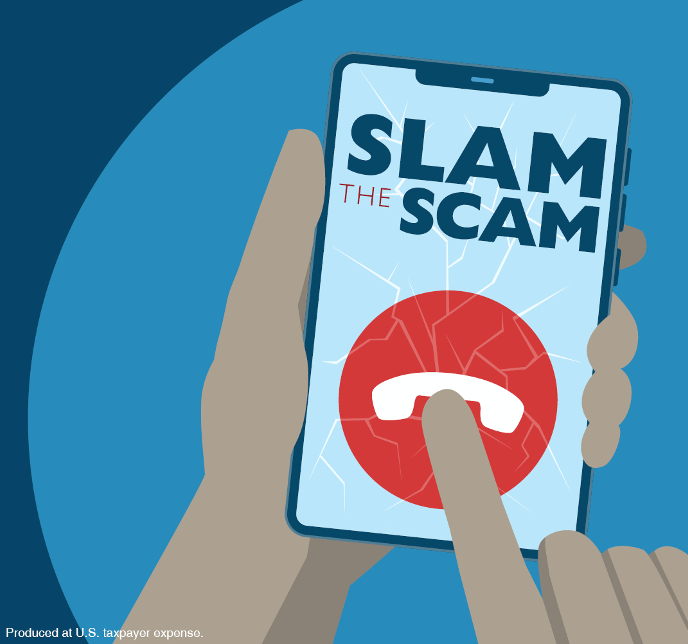In the age of digital connectivity, scams have become increasingly sophisticated, preying on unsuspecting individuals through various channels. One of the most prevalent types of scams is government imposter scams, where fraudsters pose as representatives of government agencies to deceive victims into providing personal information or money. To combat this growing threat and raise awareness, the Social Security’s Office of the Inspector General has designated March 7, 2024, as National “Slam the Scam” Day.
Planters First Bank has information for you during National Consumer Protection Week (NCPW), March 3-9, 2024 — and any time of the year. NCPW is a time when government agencies, consumer protection groups, and organizations like Planters First Bank work together to share information about consumer rights and help people learn to spot, report, and avoid scams.
Understanding Government Imposter Scams
Government imposter scams typically involve a scammer contacting individuals via phone, email, or even text messages, claiming to be from a government agency such as the Social Security Administration, the Internal Revenue Service (IRS), or the Department of Homeland Security. These scammers often use intimidation tactics, threatening legal action or the suspension of benefits, to coerce victims into complying with their demands.
The Importance of National Consumer Protection Week
National “Slam the Scam” Day falls within National Consumer Protection Week, which runs from March 3-9, 2024. This annual event aims to educate consumers about their rights and empower them to make informed decisions regarding their finances and personal information. By raising awareness of government imposter scams during this week, the hope is to equip individuals with the knowledge and tools they need to protect themselves from falling victim to fraud.
How to Protect Yourself
-
Verify the Caller: Government agencies will never demand immediate payment or personal information over the phone. If you receive a suspicious call, hang up and independently verify the caller's identity by contacting the agency directly using a trusted phone number.
-
Guard Your Personal Information: Be cautious about sharing personal or financial information, especially in response to unsolicited requests. Legitimate government agencies will never ask for sensitive information such as your Social Security number or bank account details via email or phone.
-
Stay Informed: Keep up-to-date with the latest scams and fraud alerts issued by government agencies and consumer protection organizations. Awareness of common tactics scammers use can help you recognize and avoid potential threats.
-
Report Suspicious Activity: If you believe you have been targeted by a government imposter scam or have encountered suspicious activity, report it to the appropriate authorities. This helps authorities track down scammers and prevent them from victimizing others.
Spread the Word
As we observe National Consumer Protection Week and National “Slam the Scam” Day, let us remain vigilant and proactive in protecting ourselves and our loved ones from falling victim to government imposter scams. By staying informed and taking proactive measures, we can outsmart the scammers and safeguard our financial well-being and personal information.
- Scammers Impersonate the Government
- Scam Alert
- FTC: Pass It On
- FTC: Money Matters
- Visit ftc.gov/ncpw to learn how to get free consumer education materials — including advice in a dozen languages — and read the latest from consumer protection experts.
- Georgia Attorney General’s Consumer Protection Division
